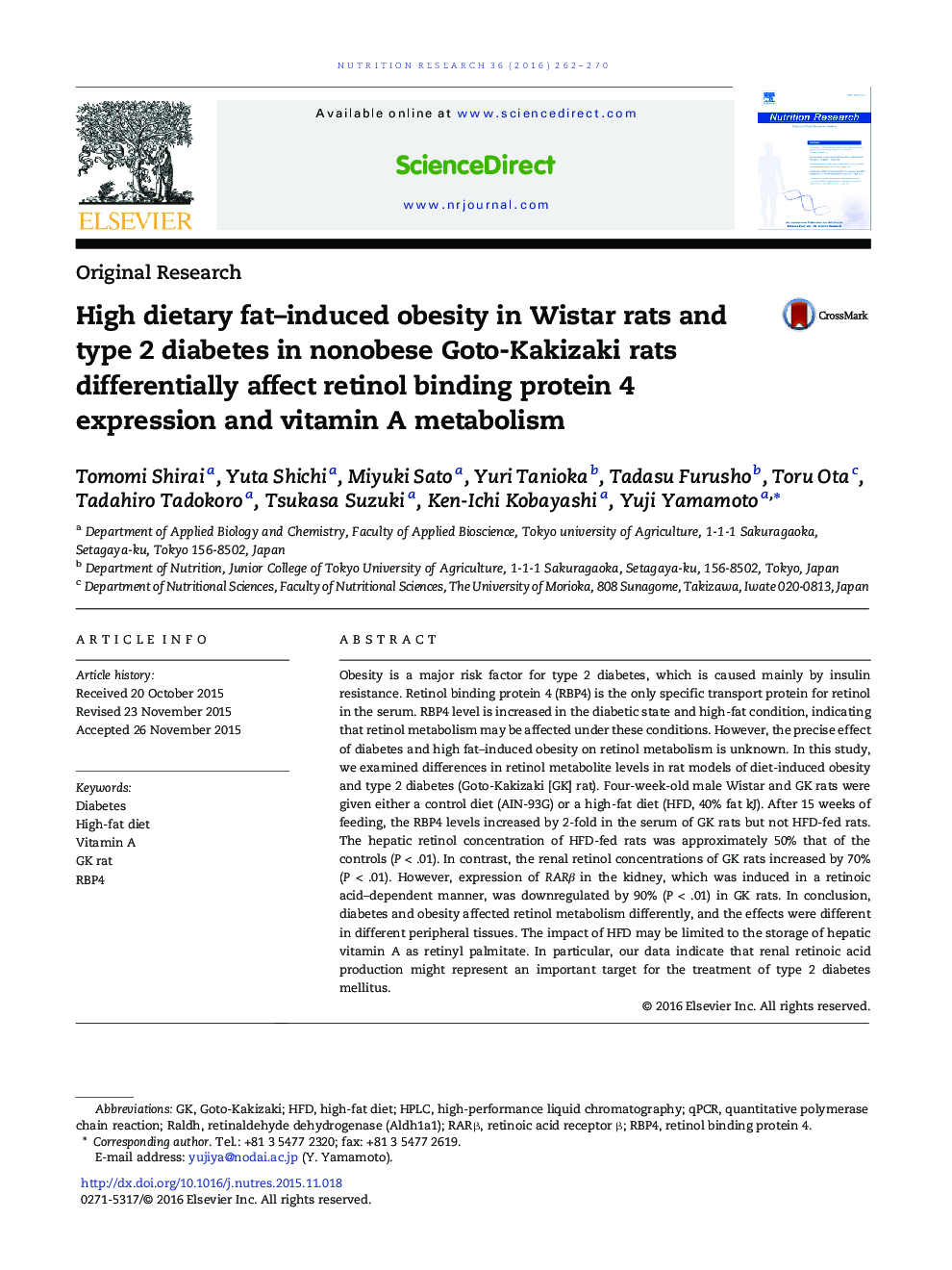| کد مقاله | کد نشریه | سال انتشار | مقاله انگلیسی | نسخه تمام متن |
|---|---|---|---|---|
| 2808969 | 1157987 | 2016 | 9 صفحه PDF | دانلود رایگان |

Obesity is a major risk factor for type 2 diabetes, which is caused mainly by insulin resistance. Retinol binding protein 4 (RBP4) is the only specific transport protein for retinol in the serum. RBP4 level is increased in the diabetic state and high-fat condition, indicating that retinol metabolism may be affected under these conditions. However, the precise effect of diabetes and high fat–induced obesity on retinol metabolism is unknown. In this study, we examined differences in retinol metabolite levels in rat models of diet-induced obesity and type 2 diabetes (Goto-Kakizaki [GK] rat). Four-week-old male Wistar and GK rats were given either a control diet (AIN-93G) or a high-fat diet (HFD, 40% fat kJ). After 15 weeks of feeding, the RBP4 levels increased by 2-fold in the serum of GK rats but not HFD-fed rats. The hepatic retinol concentration of HFD-fed rats was approximately 50% that of the controls (P < .01). In contrast, the renal retinol concentrations of GK rats increased by 70% (P < .01). However, expression of RARβ in the kidney, which was induced in a retinoic acid–dependent manner, was downregulated by 90% (P < .01) in GK rats. In conclusion, diabetes and obesity affected retinol metabolism differently, and the effects were different in different peripheral tissues. The impact of HFD may be limited to the storage of hepatic vitamin A as retinyl palmitate. In particular, our data indicate that renal retinoic acid production might represent an important target for the treatment of type 2 diabetes mellitus.
Journal: Nutrition Research - Volume 36, Issue 3, March 2016, Pages 262–270